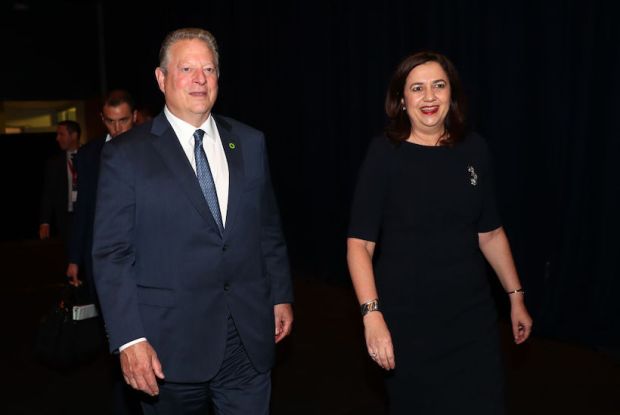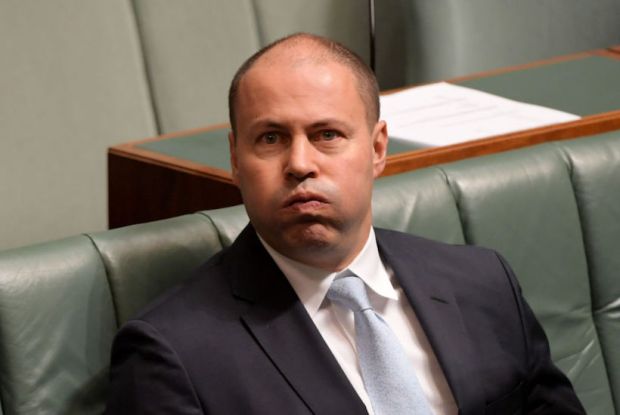Michael Gove was right. Liz Truss’ unfunded tax cuts risked the Conservatives losing the mantle of being prudent economic managers.
Just a month into the job and the UK Prime Minister, along with her Chancellor, Kwasi Kwarteng, caused an avoidable snafu thanks to their ‘mini-Budget’.
Calls for her to resign are absurd, but the general mood at the Conservative Party Conference in Birmingham, where your columnist was in attendance, was that if Truss failed to reverse the plans to cut the top rate of income tax from 45 to 40 per cent and the scrapping of bankers’ bonuses – then she’s finished.
After a growing rebellion, Truss said her government would ‘not proceed’ with plans to cut the top rate of income tax as it had become a ‘distraction’. Word is the government plans to revisit this decision towards the end of the year.
Liz Truss is by no means in the clear yet.
If things continue to go from bad to worse, the mail is that Conservative MPs will turn again to Boris Johnson. It is not a far-fetched idea considering many political pundits tipped his return virtually the day after he resigned.
Johnson stayed away this year but I was told that, in previous years, he would receive a standing ovation and cheers in whichever hall he chose to enter.
Boris Johnson was chaotic but marvellous at the same time. Interestingly but unsurprisingly, well-placed sources told me that the plot to take down the democratically elected Prime Minister began in early 2020, pursued by a small group of operatives in Downing Street.
The strategy was simple – keep up the leaks and use Dominic Cummings as a pawn. In the end, it was the three Ps that got him – Partygate, Paterson, and Pincher. As he would say, them’s the breaks.
But where Truss went wrong was failing to communicate to the public why her ‘Growth Plan’ was the right plan to renew Britain’s sluggish economy. For such complicated economic times, the public and markets are rightly sceptical of an overly simplified economic plan which belongs in the 1980s, not 2022.
Cutting the top rate of income tax made no sense politically and wasn’t attractive to those in ‘Red Wall’ seats who lent the Conservatives their vote in 2019. The government only enjoys a parliamentary majority thanks to those in the Midlands and Northern England.
In an intimate Q and A session with former Cabinet minister Michael Gove, dubbed the ‘rebel leader’, he said 2019 saw the great political realignment where ‘behind the result stood social and economic changes’.
Gove went on, ‘The campaign was built on democracy, investing in the services which people believe in like the National Health Service and an industrial strategy for a new United Kingdom.’
This is where Truss and Kwarteng need to be careful on the optics, especially in November’s medium-term fiscal plan.
The last thing voters want to see are millionaires gaining tens of thousands of pounds at a time when those on average or below average incomes are struggling to put food on the table.
The drive for tax cuts is the essence of good centre-right governments, but not when they are funded by borrowing. Fiscal conservatives usually cut taxes when there’s a budget surplus. That’s what Nigel Lawson did in 1988.
Gove rightly said, ‘There is an inherent risk in saying that you can borrow and borrow and borrow. This risk may pay off, but I am concerned what it says about the core conservative message of prudence.’
Both as federal treasurers, Messrs Morrison and Frydenberg proved that being spendthrifts when it comes to the nation’s finances may be cathartic in the moment but destroyed the Liberal Party’s image of being more economically responsible than Labor.
The UK’s sluggish growth is not because of tax burdens, it’s because of low productivity growth. The economy is not growing fast enough and high demand persists for public services. Energy supplies are scarce and must be rapidly expanded; there is a nationwide labour shortage; and over-regulation continues to strangle business. The same goes for Australia.
The problem with Truss’ plan for growth via trickle-down economics is its reliance on three external factors – that inflation doesn’t take off, that energy prices fall, and that the Bank of England doesn’t feel it has to ramp up interest rates.
And then she must pray that the economic pie grows well before the next General Election in January 2025.
Or as Gove put it, ‘If Liz is right, not only will she grow the economic pie, but she’ll make sure there’s a huge humble pie which I’ll eat!’
Truss’ gamble will either pay off or blow the chances of winning an unprecedented fifth term.
What is certainly not going to help achieve electoral success is the constant public airing of dirty laundry. Truss’ first mistake was not following the golden rule – keep your friends close and your enemies closer. Her backbench is full of experience, something her Cabinet is lacking.
However, I don’t believe that the Conservatives are finished.
I really do hope that Truss’ steely determination can beat the supercilious Keir Starmer – a politician who tried to undo the will of the British people no fewer than 48 times by trying to block Brexit.
Labour would be disastrous for a modern Britain.
A glimpse of how militant trade unions are here was shown by their decision to strike on the day Truss addressed the conference, an attempt to embarrass her by preventing attendees from travelling by train to Birmingham.
Britain cannot afford an anti-growth coalition of militant trade unions, Labour, the Scottish National Party, and Extinction Rebellion.
To prevent this, it’s time the Conservatives stop being defeatist and put the party at the service of the country.

























